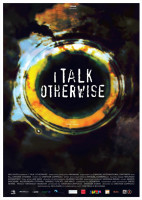I Talk Otherwise Filming Locations
I Talk Otherwise Filming Locations
Germany is a Western European country with a landscape of forests, rivers, mountain ranges and North Sea beaches. It has over 2 millennia of history. Berlin, its capital, is home to art and nightlife scenes, the Brandenburg Gate and many sites relating to WWII. Munich is known for its Oktoberfest and beer halls, including the 16th-century Hofbräuhaus. Frankfurt, with its skyscrapers, houses the European Central Bank.
Hungary is a landlocked country in Central Europe. Its capital, Budapest, is bisected by the Danube River. Its cityscape is studded with architectural landmarks from Buda’s medieval Castle Hill and grand neoclassical buildings along Pest’s Andrássy Avenue to the 19th-century Chain Bridge. Turkish and Roman influence on Hungarian culture includes the popularity of mineral spas, including at thermal Lake Hévíz.
Bulgaria is a Balkan nation with diverse terrain encompassing Black Sea coastline, a mountainous interior and rivers, including the Danube. A cultural melting pot with Greek, Slavic, Ottoman, and Persian influences, it has a rich heritage of traditional dance, music, costumes, and crafts. At the foot of domed Vitosha mountain is its capital city, Sofia, dating to the 5th century B.C.
Romania is a southeastern European country known for the forested region of Transylvania, ringed by the Carpathian Mountains. Its preserved medieval towns include Sighişoara, and there are many fortified churches and castles, notably clifftop Bran Castle, long associated with the Dracula legend. Bucharest, the country’s capital, is the site of the gigantic, Communist-era Palatul Parlamentului government building.
I Talk Otherwise (2015)
I Talk Otherwise is a movie about a journey along the Danube seen from the viewpoint of the river itself. It has been shooted in 8 countries and 9 languages, from West to East, from Capitalism to Communism, from the Black Forest to the Black Sea, flowing between the mixtures, the rafts, and the cultural contradictions of the lands crossed by the great river. Conceived as a road movie, it trails the river from its source in Germany, across Austria and some former Communist countries - Slovakia, Hungary, Croatia, Serbia, Bulgaria, Romania - all the way to its mouth in the Black Sea, on a journey from the past to the future of the Europe. The Danube, with its singular and yet multifaceted point of view, a perspective that remarkably reflects its distinctive character, becomes an unambiguous elusive guide. An allegoric emblem of the journey taken between the spiraling ideals of the modern man; through reminiscences, representations, metamorphoses that have catalyzed the life and the transitions of the Twentieth Century. Sounding the traces of tradition in all their reticence, in places where they clash with the arrogant modernity, the river flows towards its future and accompanies us to the discovery of our past. The Black Sea proves to be a return to the origins, a "meta-final" of a backward journey which reveals once again the jagged horizon of contemporaneity.
